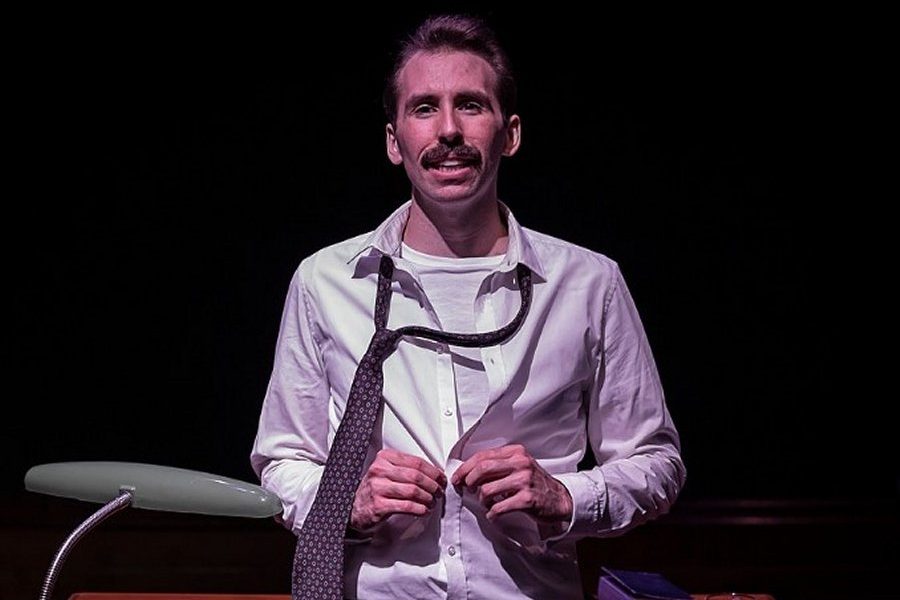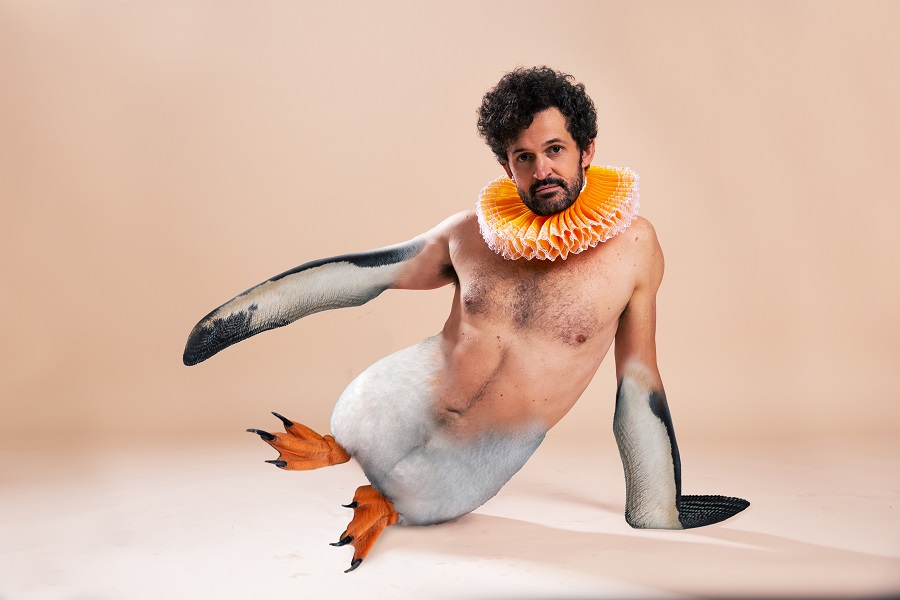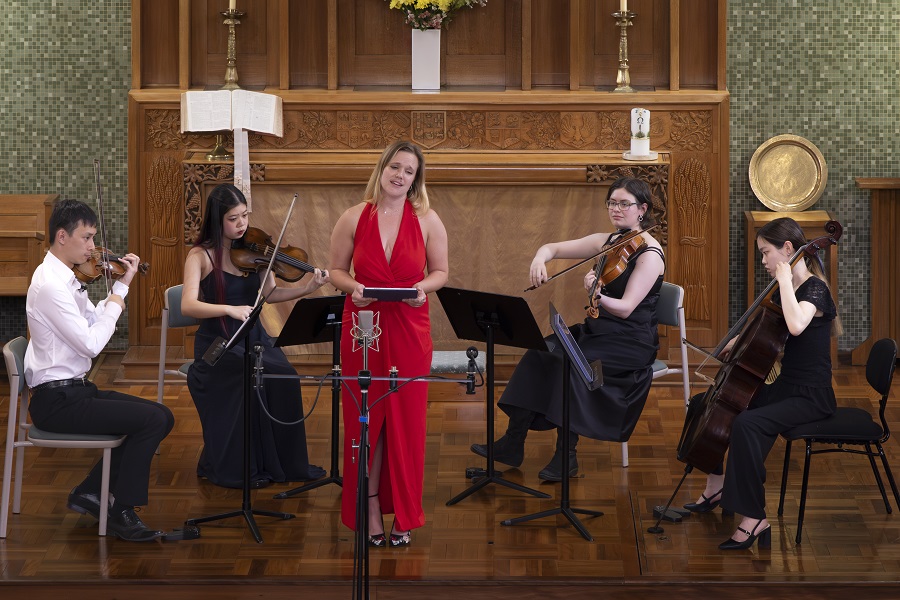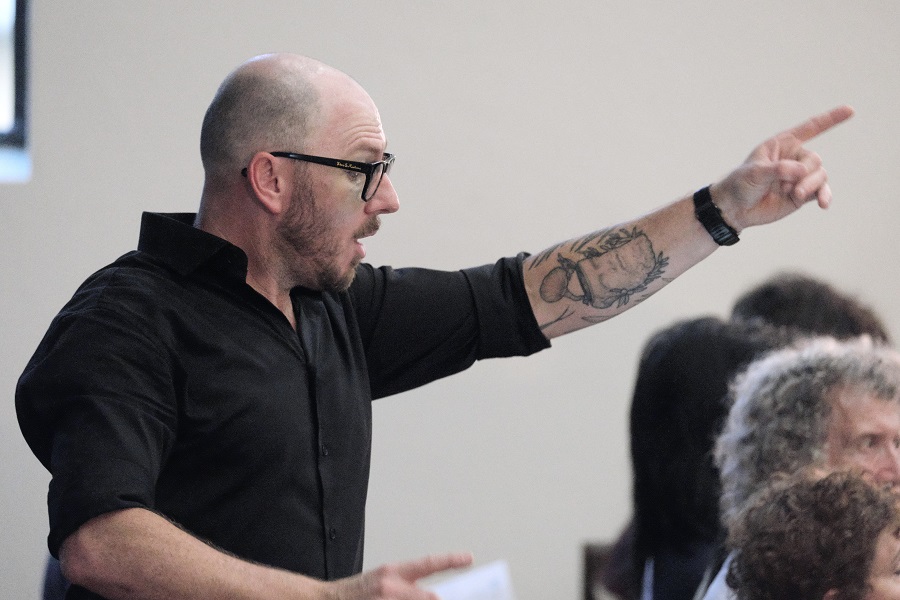
Theatre / The Will To Be, written and performed by Mark Salvestro, directed by Sarah Hallam and Phoebe Anne Taylor. At the Q Theatre, Queanbeyan to June 14. Reviewed by LEN POWER.
It’s 1962 and homosexuality is illegal. William O’Halloran, a married English lecturer, is packing up his office because he has been dismissed from his position.
Recalling the events that led to this moment, William paints a damning picture of a society that does not tolerate love between same-sex couples.
The tale of star-crossed lovers in Shakespeare’s Romeo and Juliet reminds him of his current situation and quotations from the play he clearly knows and loves, come ironically to mind as he packs.
Writer and performer, Mark Salvestro, received a Best Theatre weekly award in 2020 at the Adelaide Fringe for The Will To Be. Before this, he wrote, produced and performed his debut solo work, Buried at Sea. Most recently, he performed the role of Caravaggio in the Canberra Theatre Centre’s production of Chiaroscuro.
Salvestro, in his words and performance, gives a very real characterisation of a man struggling with feelings for his own sex in a time when society and the law frowned upon homosexuality.
This is a man who has denied his feelings, married and tried to live as society dictated at the time, only to understand his true nature when he meets and falls in love with a male student.
The parallel with Shakespeare’s Romeo and Juliet is well-handled and the show is staged simply with the focus squarely on the character of William. It looks a little lost on the Q’s large stage, and would probably work better in a smaller, more intimate venue.
Only the ending is questionable. It seems unlikely that a man in 1962 would make such a strong statement for gay rights. Taking the action that he plans would have had devastating personal consequences and seems out of character for a man who has been closeted and admits to self-loathing.
His defiant stand at the end of the play may be upbeat and pleasing to a 21st century enlightened audience, but the reality is that nothing he could have done would have changed things at that time. It would have been more powerful to let the audience see and understand the dire situation of being a gay man in such a society.
Who can be trusted?
In a world of spin and confusion, there’s never been a more important time to support independent journalism in Canberra.
If you trust our work online and want to enforce the power of independent voices, I invite you to make a small contribution.
Every dollar of support is invested back into our journalism to help keep citynews.com.au strong and free.
Thank you,
Ian Meikle, editor




Leave a Reply